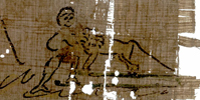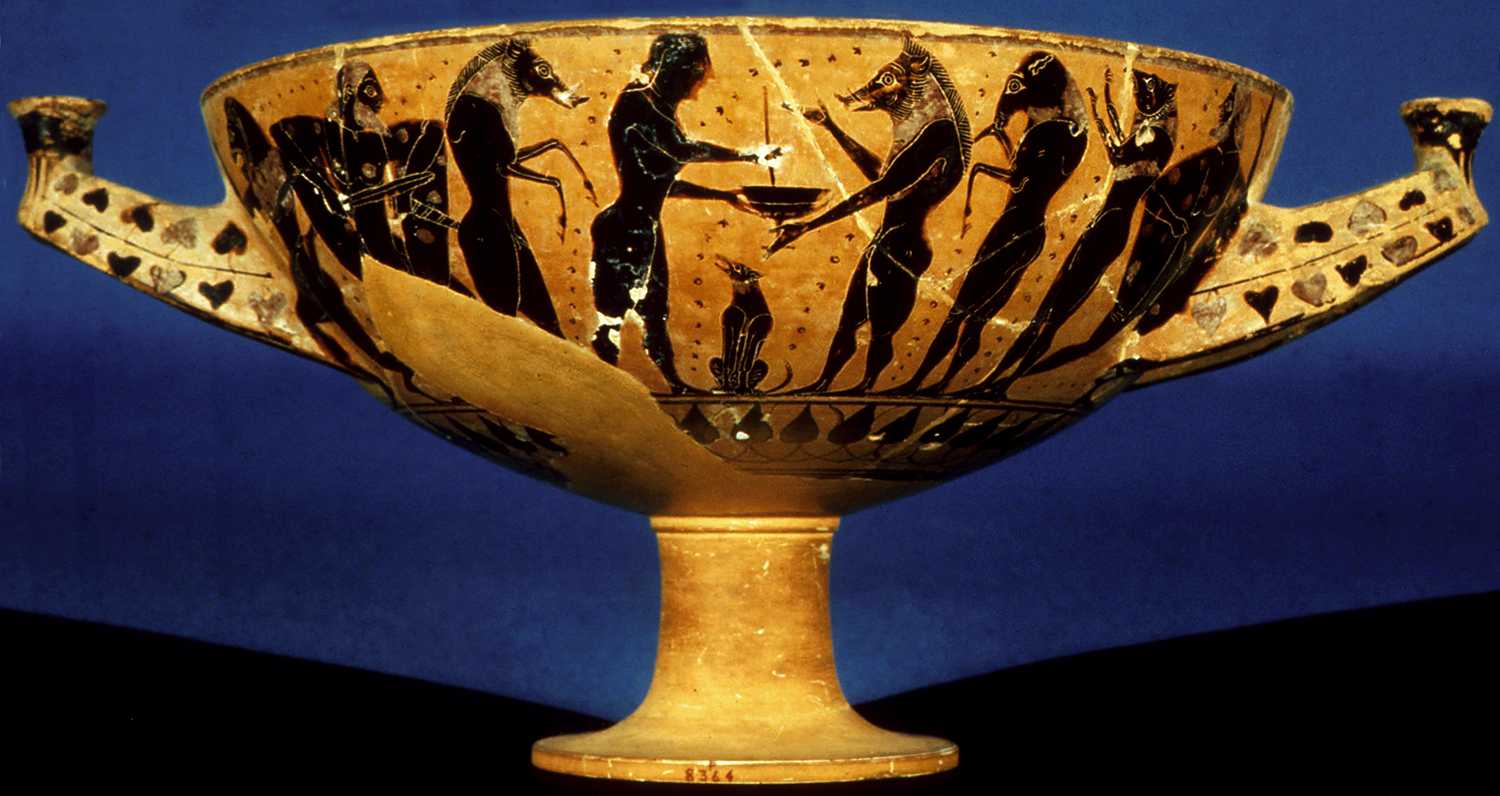|
Professor: Kim Shelton |
|
Day/Time: TTh 9:30-11 Place: A1 Hearst Annex |
Professor: Kim Shelton
Office: 7209 Dwinelle Hall
Office Hours: TW 11:15-12 or by appt.
E-mail: sheltonk@berkeley.edu

Herakles battles the Nemean Lion
Day/Time: TTh 9:30-11
Place: A1 Hearst Annex

Samantha Alford (sections 105/107) Jessie Hock (sections 101/106)
359A Dwinelle Hall T 11-12 / Th 1-2
salford@berkeley.edu
Lindsey McCandless (sections 104/108)
359A Dwinelle Hall F 12-1 / 2-3
lindsey.mccandless@berkeley.edu
4218 Dwinelle Hall Th 11:30-1
jessie.hock@gmail.com
Daniel Melleno (sections 102/103)
359A Dwinelle Hall
M 10-30-11:30 / W 9-10
dmelleno@berkeley.edu
Course Description:
This course is intended as an introduction to the themes, characters and images of Greek and Roman myth. We will create the universe, gods and humans, and then focus on particular heroes as opportunities to consider the scope and interpretations of the mythology. We will consider how these ancient cultures conceived of deity, what it meant to be human and how they dealt with the mysterious and the inexplicable. Primary evidence (literary references, physical remains such as temples and monuments, and iconography in sculpture and vase painting) will be used to identify and interpret the myths, study their origins and analyze their importance for our understanding of ancient belief systems. Particular attention will be paid to the role of mythology in ancient religious ritual and its influence on culture. Class lectures will be illustrated with images of ancient and more recent art, as one goal of the course is to provide the tools to recognize myths and characters in art.
Grading:
Grades will be based on three tests (60%) consisting of short answers, essays and slide identifications, and a term research paper (25%), and performance in section (15%). You are responsible for all material presented in the class lectures (especially slide images), discussion section, and in the reading assignments. All tests must be taken at their scheduled time/place. Other arrangements or make-up tests will be possible only for genuine emergencies and must be scheduled well in advance. Work missed for athletic or academic obligations and religious holidays can be made up if documentation is provided at least 14 days in advance. To receive credit on a P/NP basis, you must complete all assignments and achieve a final average of at least 70%.
Students with Disabilities
Students needing academic accommodations for any physical, psychological, or learning disability who are registered with the Disabled Students’ Program are encouraged to see me in office hours to discuss accommodations for this course.
Academic Integrity
All work (tests, quizzes, papers, projects, etc.) that you submit for this class is presumed to be your original, independent work that has not been submitted previously in another course unless expressly allowed by the instructor. In any written work that you submit, you must properly attribute the ideas and words of others. If you are unclear about expectations for an assignment or how to cite sources when using someone else’s idea or words, please see me, or your GSI before the assignment is due. As a member of the UC Berkeley campus community, you are expected to uphold the UC Berkeley Honor Code and demonstrate integrity in all of your academic endeavors. You will be evaluated on your own merits. The consequences of academic dishonesty as outlined in the Berkeley Campus Code of Student Conduct are not worth it.
Required Texts:
Robert Graves, The Greek Myths
Euripides: Ten Plays, P. Roche
Homer, Iliad and Odyssey, Lombardo tr.
Hesiod, Theogony, Works and Days, West tr.
The Homeric Hymns, Shelmerdine tr.
Aeschylus, Oresteia, Fagles tr.
Sophocles I, Grene and Lattimore tr.
*n.b. if you have translations other than those ordered for the class you may use them but be careful of page and line references that refer to these editions.
Additional readings available on B-Courses website in pdf.
Reading Assignments:
The daily assignments on the syllabus are to be completed BEFORE the
class day where they appear and these readings are IN ADDITION to daily
segments of Graves Greek Myths that should be consulted extensively as
a reference work.
SYLLABUS
1/20/15
sheltonk@berkeley.edu